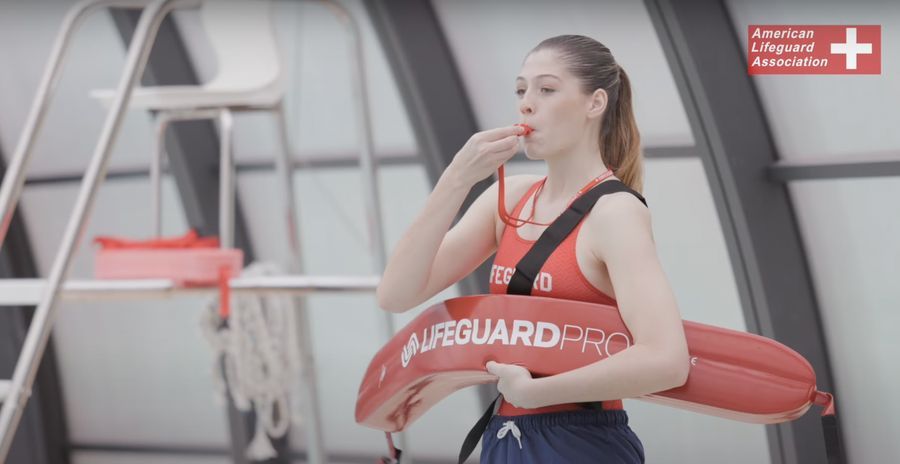Dreaming of spending your summer by the pool while making a difference in your community? Becoming a lifeguard might be the perfect fit for you. Not only does it offer an exciting opportunity to work outdoors, but it also equips you with essential life-saving skills. In this blog post, we’ll explore everything you need to know about lifeguard certification, from finding the best courses near you to understanding what the American Lifeguard Association offers. Whether you’re a high school student looking for a summer job, or an adult seeking a rewarding career change, we’ve got you covered.
Why Lifeguard Certification Matters
Lifeguard certification ensures that you’re well-prepared for any situation that might arise at the pool or beach. It’s more than just a job requirement; it’s a commitment to safety. Certified lifeguards can confidently handle emergencies, provide first aid, and ensure swimmers’ well-being. Without proper training, even the most attentive person might miss crucial signs of distress, leading to preventable accidents.
Benefits of Becoming a Certified Lifeguard
Being a certified lifeguard isn’t just about responsibility—it’s also incredibly rewarding. Firstly, it offers competitive pay, making it an attractive job for students and seasonal workers. Additionally, you’ll gain valuable skills such as CPR, first aid, and water rescue techniques, which are beneficial beyond the workplace. Lastly, working as a lifeguard can be a great resume booster, showcasing your ability to handle high-pressure situations and showing a strong sense of community service.
Lifeguard Certification Near Me
Finding a lifeguard certification course near you is easier than you might think. A quick internet search for lifeguard certification near me will usually yield several options. Be sure to read reviews and check the credentials of the training providers to ensure you’re signing up for a reputable course.
Course Requirements and Expectations
Before enrolling in a lifeguard certification course, it’s essential to understand the prerequisites and what to expect. Most programs require participants to be at least 15 years old and to pass a swimming test. The courses typically cover CPR, first aid, and water rescue techniques. You’ll also learn how to use equipment like rescue tubes and backboards. The training is comprehensive, combining classroom instruction with hands-on practice to ensure you’re fully prepared for real-life scenarios.
American Lifeguard Association (ALA)
The American Lifeguard Association (ALA) is one of the leading organizations offering lifeguard certification in the USA. They provide a range of courses designed to meet the needs of various aquatic environments, including pools, water parks, and open-water facilities. The ALA is known for its rigorous training standards and commitment to safety, making it a trusted name in lifeguard certification.
Types of Lifeguard Certification
There are different types of lifeguard certifications, depending on the environment you plan to work in. Pool lifeguard certification focuses on skills needed for supervising indoor and outdoor pools. Beach lifeguard certification, on the other hand, includes training for handling ocean currents and waves. Water park lifeguard certification covers unique challenges such as slides and wave pools. Knowing which certification you need is crucial for ensuring you’re adequately prepared for your specific workplace.
How to Prepare for Lifeguard Training
Preparation is key to succeeding in your lifeguard training. Start by improving your swimming skills, focusing on endurance and technique. Familiarize yourself with basic first aid and CPR concepts to give yourself a head start. Additionally, consider joining a swim team or taking advanced swimming lessons to build your confidence in the water.
What to Bring to Your Lifeguard Course
When attending your lifeguard certification course, make sure to bring essential items. These typically include a swimsuit, towel, sunscreen, and a change of clothes. Also, bring a notebook and pen for taking notes during the classroom sessions. Some courses provide manuals and other materials, so check with your training provider beforehand to see if there’s anything extra you’ll need.
Common Challenges and How to Overcome Them
Lifeguard training can be physically and mentally demanding. One common challenge is the rigorous swimming tests, which require stamina and strong swimming skills. To overcome this, practice regularly and focus on your technique. Another challenge is learning to stay calm under pressure, especially during simulated rescues. Mindfulness and stress-management techniques can be helpful in building your resilience.
Maintaining Your Certification
Once you’ve earned your lifeguard certification, it’s essential to keep it current. Certifications usually need to be renewed every two years, and the renewal process often involves a refresher course and a skills test. Staying active in the lifeguarding community and continuously improving your skills will make the renewal process smoother and ensure you’re always ready to respond in an emergency.
Real-Life Stories of Lifeguards
Hearing from experienced lifeguards can provide valuable insights and inspiration. Many lifeguards have stories of dramatic rescues and heartfelt moments that highlight the importance of their role. These stories can also offer practical tips and advice for new lifeguards, helping you prepare for the challenges and rewards of the job.
How Lifeguarding Builds Character
Lifeguarding is more than just a job; it’s a character-building experience. Lifeguards develop leadership skills, learn to make quick decisions under pressure, and cultivate a strong sense of responsibility. These attributes are not only valuable in the workplace but also in everyday life. By becoming a lifeguard, you’re not just earning a paycheck—you’re growing as a person.
How to Get Started Today
Ready to take the plunge and start your lifeguard certification journey? Begin by researching local courses and deciding which type of certification best suits your needs. Sign up for a course, prepare diligently, and approach your training with a positive mindset. Remember, you’re not just training for a job—you’re preparing to save lives.
Final Opinion
Lifeguard certification is a pathway to a fulfilling and impactful job. It equips you with essential skills, provides opportunities for personal growth, and allows you to contribute to the safety and well-being of your community. By following the steps outlined in this guide, you’ll be well on your way to becoming a confident and capable lifeguard. Ready to get started? Find a lifeguard certification course near you and take the first step towards a rewarding career today.





